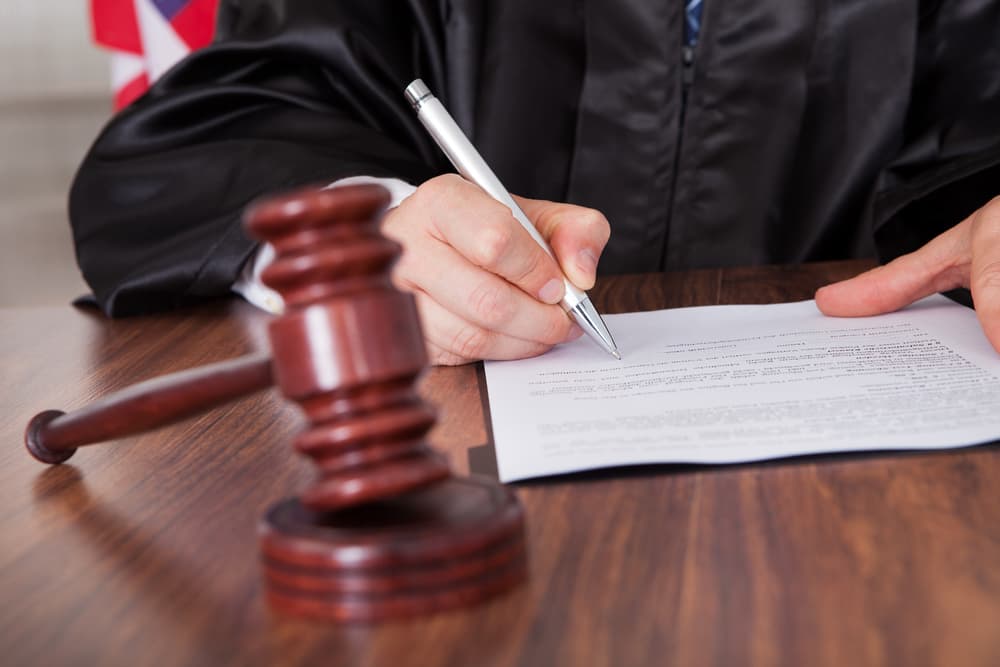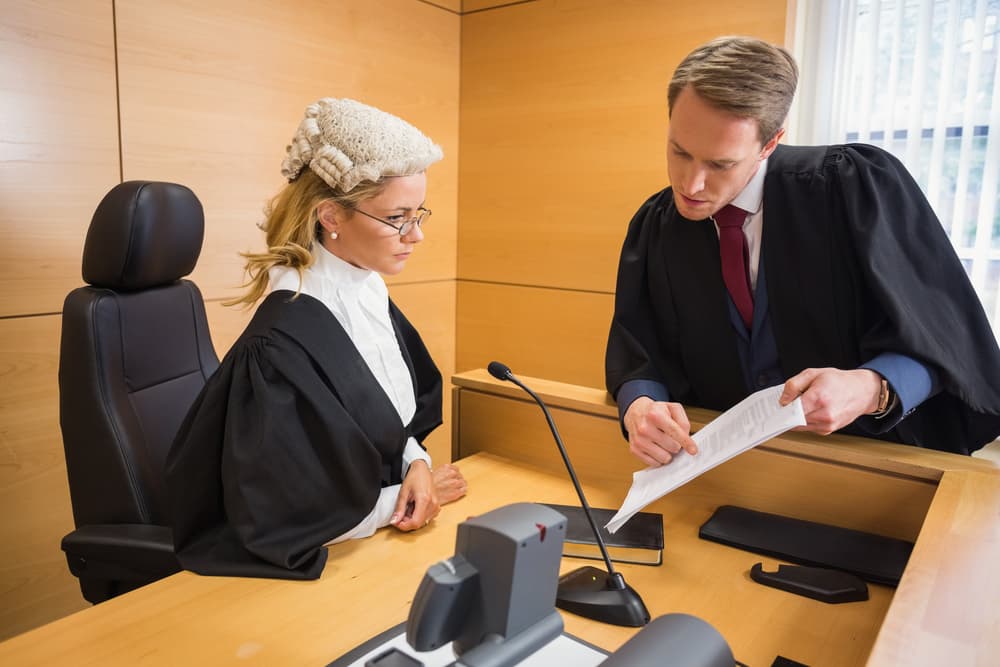Whether it's your first time in a California court or you've been through a criminal court appearance before, understanding how to prepare can make a difference in how you feel and potentially in the outcome of your case. Here's a guide to support you while preparing for your day in court in California. The most important thing to do is contact a California criminal defense attorney.
With the right defense lawyer on your side, you will have someone representing you in court, handling all communications and court proceedings. While you must appear in court, your CA criminal defense lawyer will handle the rest.
That said, the following is some helpful information about criminal court.
Understand the Charges and Process
First and foremost, you need to fully understand the charges against you and the legal process that awaits. California's criminal justice system has its own set of procedures, and familiarity with them can help reduce anxiety and prepare you for what's to come.
If you have a criminal defense lawyer, they will explain these aspects to you. If you're representing yourself, consider researching reliable legal resources or seeking legal advice.
Dress Appropriately
Here are some tips to aid you in preparations for your appearance before your day in court in California:
- Choose clothing that fits well and is clean and pressed. Avoid clothing that is too tight, too loose, or too worn.
- Choose clothing that is appropriate for the season and the weather. For example, do not wear a heavy wool suit in the summer or a light linen dress in the winter.
- Choose clothing that matches the tone and seriousness of your case. For example, do not wear bright colors or flashy patterns if facing a serious charge or a civil lawsuit.
- Choose clothing that shows respect for the court and the legal process. For example, do not wear clothing that has offensive messages or images or that shows disrespect for the law or the judge.
- Choose accessories that are simple and minimal. Avoid jewelry that is too large, too noisy, or too distracting. Take off any piercings or cover tattoos that might be inappropriate or unprofessional.
Following these guidelines allows you to dress appropriately for court and make a positive impression on the judge, jury, and other court officials.
Remember, your appearance in court is not only about how you look but also how you act and say. Be polite, respectful, and confident; you will have a better chance of achieving a favorable outcome.
Organize Your Documents

Gathering all the necessary documents for your case carefully ensures a comprehensive and effective presentation, including any paperwork provided by the court or your criminal defense attorney; it sets a foundation for a more organized defense presentation.
The process of organizing your documents involves several considerations. First, your criminal defense lawyer will aid your understanding of which documents will be relevant to your case. These can range from charges and arrest records to personal items like correspondence, evidence of alimony payments, or character references. Each piece of paper holds potential value in building your case or answering questions posed by the judge or opposing counsel.
After identifying the necessary documents, the next step is to arrange them to make them easily accessible. This might mean categorizing documents by type, date, or relevance to specific aspects of your case. For instance, keeping all evidence related to a particular claim together can save time during proceedings, allowing for a smoother presentation and helping to make a stronger impression on the court.
Make sure your documents are complete and up-to-date as well. This might involve checking that you have the latest communications from the court or your criminal defense lawyer and that any required forms or responses have been properly filled out and signed. Missing or outdated documents can lead to delays, misunderstandings, or missed opportunities to present your case effectively.
In case of any uncertainty about the necessary documents or how to organize them, consulting with your attorney is wise. An experienced legal professional can advise on what to bring and how to arrange your materials to best support your case. They can highlight the importance of certain documents over others and guide you on how to use them effectively during your appearance.
Arrive Early
Arriving early shows respect for the court and the judge. It demonstrates that you take your case seriously and are ready to cooperate with the legal process.
Arriving early can also aid in unnecessary stress and anxiety. If you are late, you may miss important information, instructions, or announcements from the court staff. You may also risk having your case dismissed or postponed, which can negatively affect your legal situation.
Arriving early can also allow you to observe and learn from other cases. You can see how the judge and the lawyers interact. You can also understand the courtroom etiquette and the court's expectations.
Lastly, arriving early can allow you to communicate with your lawyer or your legal representative if you have one. You can review your case, ask questions, clarify any doubts, and receive guidance on how to behave and what to say in court. You can also inform your lawyer of any changes or updates affecting your case.
Practice Respectful Courtroom Behavior

Practicing respectful courtroom behavior demonstrates respect for the legal process and the individuals operating within it. This respect is communicated through your actions and demeanor, impacting how the judge, jury, and opposing counsel perceive you. At its core, respectful behavior in the courtroom underlines the seriousness with which you approach your case and the legal system as a whole.
When you speak only when spoken to, it shows that you understand and respect the procedural flow of the courtroom. This discipline helps maintain order and ensures all parties have a fair opportunity to present their case. Interrupting or speaking out of turn can be seen as disrespectful and may negatively affect the judge's and jury's perception of you.
Addressing the judge as "Your Honor" is a long-standing tradition that conveys respect for the judge's position and authority within the courtroom. This address recognizes the judge's role in ensuring justice is served and acknowledges their experience and experience in the law.
Similarly, standing when you speak to the judge (unless physically unable) is a sign of deference, emphasizing that you value their attention and are engaging earnestly with the court's proceedings.
Turning off your cell phone or any other electronic device before entering the courtroom is another aspect of respectful behavior. Electronic devices can be a source of distraction, and their use or audible notifications can interrupt the proceedings, showing a lack of consideration for everyone involved in the case. By turning off your devices, you're contributing to a focused and respectful environment where the legal process can proceed without unnecessary hindrances.
Respectful courtroom behavior also extends to how you interact with all individuals in the courtroom, including opposing counsel, court staff, and fellow attendees. Politeness, patience, and a calm demeanor can go a long way in maintaining a positive atmosphere. This approach can also benefit your case, demonstrating your ability to handle stressful situations gracefully and maturely.
Listen and Communicate Clearly
In the courtroom, effective communication is a dynamic two-way process involving attentive listening and thoughtful responses. This approach not only showcases respect for the court's time but also underscores the gravity of the proceedings. Navigating legal matters requires a keen understanding of courtroom etiquette, emphasizing the importance of clear and respectful communication.
Listen carefully to the questions asked when it is your turn to speak. This attentive listening ensures that your responses are directly relevant to the inquiries, facilitating a smoother legal process and demonstrating your engagement.
Providing clear, concise answers is equally important. In the context of a courtroom, where every word can carry weight, the ability to articulate your thoughts succinctly and accurately is a key component of effective advocacy for your position. Rambling or unclear responses can muddle the facts of the case, potentially leading to misunderstandings or diluting your arguments. In contrast, clarity and precision in your communication can help to strengthen your case, making it easier for the judge and jury to understand your perspective.
If you don't understand a question, asking for clarification is acceptable and advisable. Doing so is not an admission of ignorance but rather an indication of your desire to provide the most accurate and relevant information possible. It reflects a commitment to clear communication and helps avoid any potential misinterpretations arising from guessing the meaning of unclear questions.
Being truthful in your responses is another cornerstone of effective courtroom communication. Honesty not only upholds the ethical standards expected in legal proceedings but also serves your interests by maintaining your credibility with the court. Inconsistencies or falsehoods in your testimony can severely undermine your case, leading to negative judgments or penalties.
Understand the Presentation of Evidence

Evidence is the information and materials presented in court to substantiate your claims or refute the opposing side's arguments.
This evidence can manifest in two primary forms: witness testimony, including statements from individuals directly involved or those with relevant knowledge, and exhibits, which cover a wide range of tangible proofs such as documents, photographs, and records.
Witness testimony provides firsthand accounts of the case's circumstances. This category includes the parties involved, bystanders, record keepers, and expert witnesses who can offer specialized insights. The presence of these witnesses in court is typically required for them to share their testimonies directly.
Exhibits, on the other hand, serve as physical or digital evidence to support your case. This can include anything from written documents and photos to more specific records like police reports, medical documentation, financial statements, etc. These items collectively paint a comprehensive picture of the situation at hand.
Understanding the rules of evidence is another aspect of preparation. The California Evidence Code, like similar regulations in other jurisdictions, sets forth the criteria for what evidence is admissible in court, emphasizing the need for reliable, relevant, and firsthand testimony. These rules ensure that the evidence presented is of a quality that can assist the judge in making informed decisions about the case.
Be Patient and Prepared for Delays
The legal system often operates at a pace that can test the patience of those involved. Understanding that delays are a common aspect of the legal process is important for anyone preparing for a day in court. This understanding can help manage expectations and reduce the stress of waiting for your case to progress.
Preparing to spend significant time in court is an important part of this process. Court schedules are notoriously unpredictable, with cases sometimes taking longer than anticipated or unforeseen issues arising that can push back your court time. Recognizing this reality allows you to plan accordingly, not just in terms of the day's schedule but also in managing your mental and emotional readiness for a lengthy and draining experience.
Embracing patience helps maintain a calm and collected demeanor, which can be beneficial in a setting where tensions run high and decisions can have significant consequences. To make waiting times more bearable, consider bringing materials to quietly occupy your time. A book, crossword puzzles, or other forms of light entertainment can provide a welcome distraction and help the time pass more quickly. However, it's best to choose activities that respect the courtroom environment—court officials could frown upon anything too distracting or disruptive.
Using this waiting time as an opportunity for reflection or mental preparation for the proceedings can also be beneficial. Reviewing your notes, going over your statements, or simply taking a moment to center yourself mentally can make you feel more prepared when the time comes to present your case or respond to questions.
Always Have Legal Representation

If you haven't already, seriously consider seeking legal representation. A knowledgeable California defense attorneys can guide you through the process, represent your interests, and provide you with the best possible defense. If you're concerned about costs, you might be eligible for a public defender or legal aid services.
Preparing for a criminal court appearance in California requires understanding the legal process, organizing your documents, and knowing what to expect on your court appearance. These steps allow you to approach your court date more confidently and poisely. Remember, every step to prepare is a step towards advocating for yourself within the legal system.